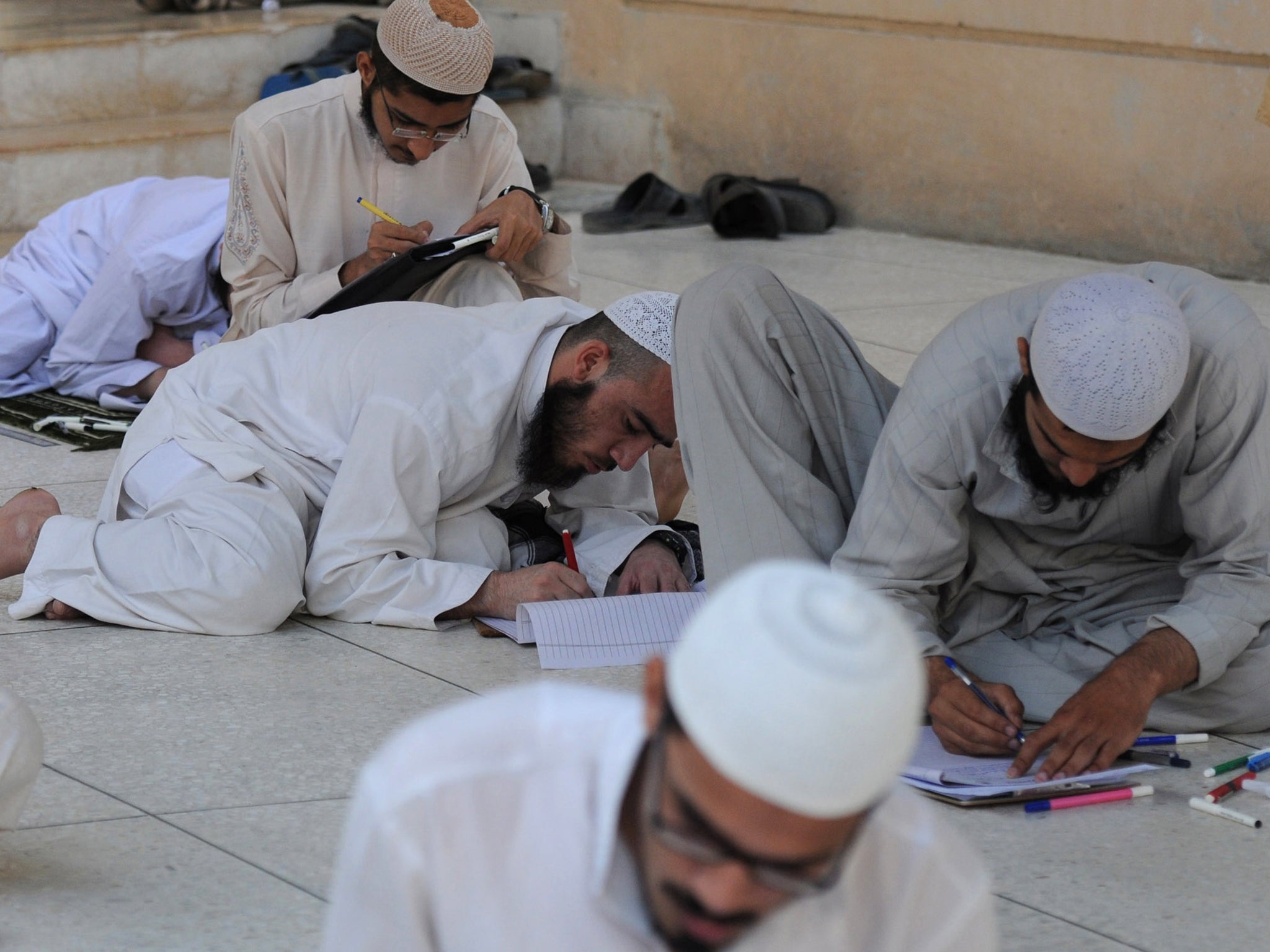Pakistan's youth favour Sharia law and military rule over democratic governance

More young people in Pakistan believe the country should be run according to Sharia law or else by the military than favour democratic governance, according to a new survey.
Just weeks before the country goes to the polls in what is seen as an historic election, the survey of people aged between 18-29 suggests 94 per cent of those questioned believe the country is headed in the wrong direction. That figure is up from with 86 per cent in 2009 and just 50 per cent in 2007.
According to the poll, conducted by the British Council, only 29 per cent of young Pakistanis believe democracy is the best political system for the country.
By contrast, 32 per cent support governance by the military, which has ruled Pakistan for more than half its history, while 38 per cent said they believed the country should be ruled according to Islamic law. Indeed, while the civilian government has just 14 per cent of public support, the army is supported by 77 per cent of those questioned.
The report, carried out between December 2012 and January 2013, suggests young people in Pakistan have seen few benefits from democracy under the rule of President Asif Ali Zardari and the Pakistan Peoples Party. It has been published weeks away from an election scheduled for May 11 that will mark the first time in the country’s history that one democratically-elected government has completed its full term and been replaced by another elected administration.
“Young people are losing confidence in the democratic system,” the report says. “Leaders of all political persuasions have a duty to convince the youth that they remain committed to undiluted democracy for Pakistan.”
It adds: “The youth of Pakistan have a pessimistic outlook today, but it is important to remember their fervour for the country is unbridled and passionate. A substantial majority of the youth still believe that they will have a role in changing the country for the better, and policy makers need to address their needs to accrue the benefits of their patriotism.”
The report says that 30 per cent of registered voters, around 25m people in all, are aged between 18 and 29. Although the report found widespread pessimism about the benefits of democracy, it also discovered that 60 per cent of those questioned intended to vote in the upcoming election. A further ten per cent said they would be persuaded to go to the polls and make their mark.
“[Young people] will participate and vote actively in comparison to any elections in the past,” Roshna Khan, a 24 year-old from Mansehra in Khyber-Pakhtunkhwa province, told the pollsters.
Another young person quoted in the survey, Umey Aymen, a student from Quetta, in Baluchistan, said: “The youth is more clued up and they understand that only their vote can bring the difference that they have been waiting for.”
Pakistan is confronting a host of problems, including a faltering economy, inadequate infrastructure and a persistent threat from extremists and militants. The survey found that 44 per cent listed inflation as the biggest concern, followed by 19 per cent who mentioned unemployment while 11 per cent listed terrorism.
The report, available at www.nextgeneration.com.pk, says that young people are “starved of opportunities”. Just one in ten is in stable employment while more than one third are either still students, working for themselves or working as day labourers. Half of those questioned are not working.
“Young people have very low levels of confidence in the institutions – government, parliament, political parties – most responsible for setting the country’s direction,” the report says. “In contrast, the justice system and the media have higher approval ratings, as does Pakistan’s armed forces.”
Raza Rumi, an Islamabad-based writer and analyst, said he believed the survey reflected the Islamisation that Pakistan had undergone since the late 1970s and 1980s and which had become pervasive throughout the education system.
“The results are not surprising and we face a really confused young population that is brainwashed with visions of a glorious Islamic past and the gritty reality of unemployment, insecurity and political turmoil,” he said. “The last five years of democracy have also been misrepresented by the same elements who are permanent stakeholders in non-representative forms of governance.”
Join our commenting forum
Join thought-provoking conversations, follow other Independent readers and see their replies
Comments
Bookmark popover
Removed from bookmarks